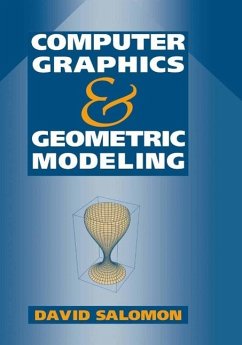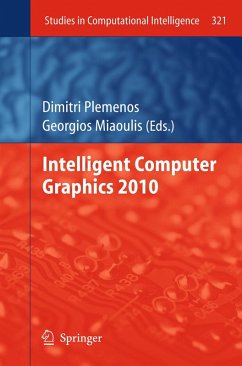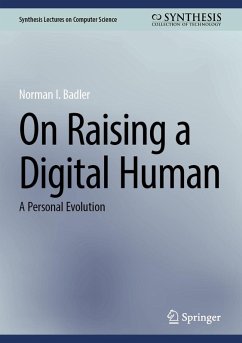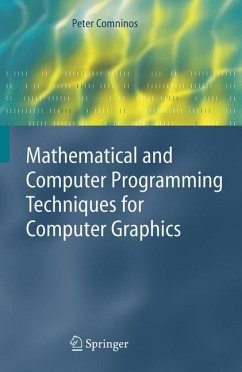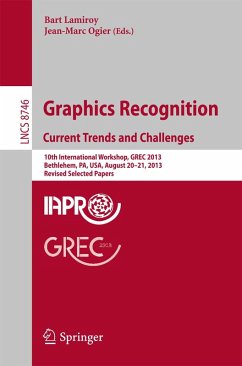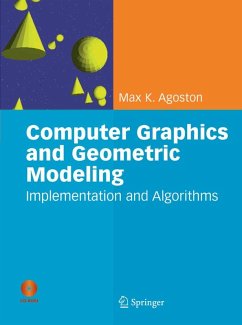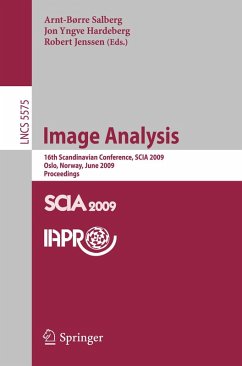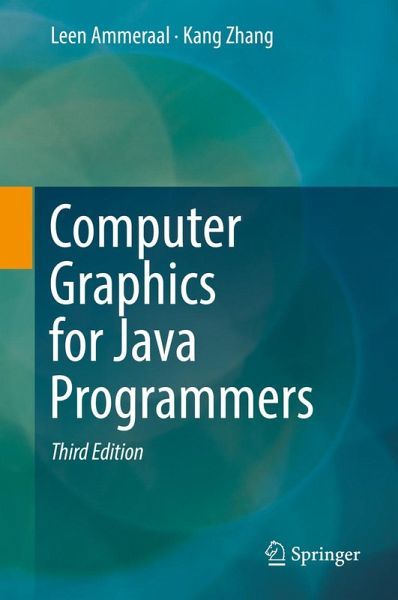
Computer Graphics for Java Programmers (eBook, PDF)

PAYBACK Punkte
27 °P sammeln!
This third edition covers fundamental concepts in creating and manipulating 2D and 3D graphical objects, including topics from classic graphics algorithms to color and shading models. It maintains the style of the two previous editions, teaching each graphics topic in a sequence of concepts, mathematics, algorithms, optimization techniques, and Java coding.Completely revised and updated according to years of classroom teaching, the third edition of this highly popular textbook contains a large number of ready-to-run Java programs and an algorithm animation and demonstration open-source softwar...
This third edition covers fundamental concepts in creating and manipulating 2D and 3D graphical objects, including topics from classic graphics algorithms to color and shading models. It maintains the style of the two previous editions, teaching each graphics topic in a sequence of concepts, mathematics, algorithms, optimization techniques, and Java coding.
Completely revised and updated according to years of classroom teaching, the third edition of this highly popular textbook contains a large number of ready-to-run Java programs and an algorithm animation and demonstration open-source software also in Java. It includes exercises and examples making it ideal for classroom use or self-study, and provides a perfect foundation for programming computer graphics using Java.
Undergraduate and graduate students majoring specifically in computer science, computer engineering, electronic engineering, information systems, and related disciplines will use this textbook for theircourses. Professionals and industrial practitioners who wish to learn and explore basic computer graphics techniques will also find this book a valuable resource.
Completely revised and updated according to years of classroom teaching, the third edition of this highly popular textbook contains a large number of ready-to-run Java programs and an algorithm animation and demonstration open-source software also in Java. It includes exercises and examples making it ideal for classroom use or self-study, and provides a perfect foundation for programming computer graphics using Java.
Undergraduate and graduate students majoring specifically in computer science, computer engineering, electronic engineering, information systems, and related disciplines will use this textbook for theircourses. Professionals and industrial practitioners who wish to learn and explore basic computer graphics techniques will also find this book a valuable resource.
Dieser Download kann aus rechtlichen Gründen nur mit Rechnungsadresse in A, B, BG, CY, CZ, D, DK, EW, E, FIN, F, GR, HR, H, IRL, I, LT, L, LR, M, NL, PL, P, R, S, SLO, SK ausgeliefert werden.
Alle Preise in Euro und inkl. der gesetzl. MwSt. | Innerhalb Deutschlands liefern wir preisgebundene Bücher versandkostenfrei. Weitere Informationen: bitte hier klicken
Support
Bitte wähle dein Anliegen aus:
Rechnungen
Bestellstatus
Retourenschein
Storno




